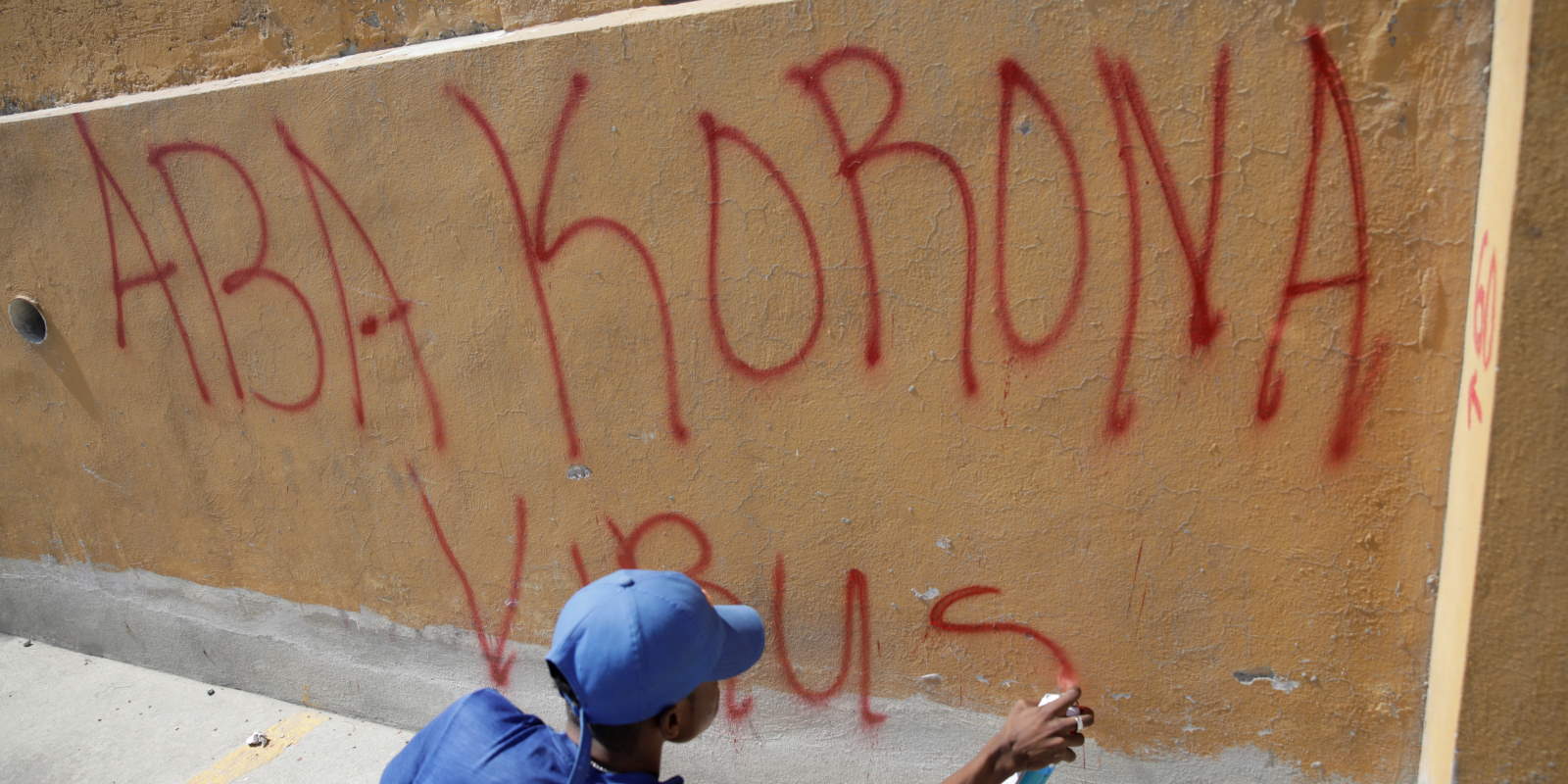When COVID-19 began to spread across continents, people of Asian descent suffered discrimination and stigma as they were blamed for the spread of COVID-19. In turn, there were widely reported incidents of discriminatory acts against Africans in China. However, over time, common patterns in discriminatory acts began to take shape in African countries, with the victims being mainly those suspected or known to have contracted the virus, regardless of their nationality. In some townships in South Africa, for instance, families of those who tested positive for COVID-19 have experienced ill-treatment and discrimination as a result of the stigma associated with the virus.
More needs to be done to raise public awareness around COVID-19-related discrimination, and people must be encouraged to acknowledge that this is a worldwide pandemic affecting anyone, regardless of race or culture.
Tweet
In Khayelitsha, a township in Cape Town, the family of a woman who contracted the virus said they experienced several hateful social media posts and voice notes. In KwaZulu-Natal, the sister of a teacher who died from COVID-19-related complications said that some community members rejected her family and kept away from their residence. In Mpumalanga, a mother who was rumoured to have tested positive went into hiding after receiving death threats from the community. Fear, which leads to stigma, also occurs within families. For instance, there were reports of a woman from Middelburg (South Africa) who was forced to leave home after testing positive. When she tested positive, she immediately called her sister for comfort. Instead, her sister told her that her clothes would be waiting for her at the gate. Word spread that she was infected, and no one wanted to help her. In fear of being victimised, she moved to another area.
Many individuals who have recovered from the virus continue to face stigmatisation and discrimination. In the Democratic Republic of the Congo, survivors battle against people’s denial of the virus and stigmatisation. According to reports, people who have recovered from the virus have been threatened and shunned in their communities. They face constant suspicion that they may spread the disease. A COVID-19 survivor reported that their children were nicknamed ‘COVID’ or ‘Corona’ in the neighbourhood, and stated that this kind of treatment drives people into hiding. An assessment carried out by Save the Children in April, along with increasing anecdotal reports from staff, indicated that misinformation around the spread of COVID-19 is a concerning barrier to reducing infection rates of the disease. In addition, prejudice against those affected is contributing to stigmatisation across sub-Saharan Africa and discouraging people from seeking healthcare if they develop symptoms.
The findings of the assessment reflect recent findings from the Africa Centres for Disease Control and Prevention (Africa CDC), which found that while COVID-19 awareness is high across the continent, significant misconceptions exist. These misconceptions include 55.8% of people believing that you should avoid people who have recovered from COVID-19 to prevent the spread of the disease. Such occurrences in communities shift the focus away from finding ways to curb the spread of the virus, and instead create fear among those who reside in these areas. In addition, such stigma and acts of discrimination increase the possibility that people will hide symptoms or illness, keep away from seeking healthcare and refrain from getting screened, quarantined or tested for COVID-19 for fear of being attacked by their fellow community members. Indeed, in a roundtable discussion hosted by the United Nations, it was highlighted that the stigma attached to COVID-19 was damaging and would lead to people being reluctant to either disclose their status or seek treatment if necessary, thus making it more difficult to contain the spread of the virus.
In some cases, healthcare workers have become targets of discriminatory attacks, as it is assumed that they are at risk of being infected in their workplaces. In an article published by the United Nations Children’s Fund (UNICEF), a health worker narrates the struggles they face in Malawi, where they are often abused on public transport by fellow passengers, who fear they may be infected by sharing a vehicle with them. This has led to nurses being hesitant about wearing their uniforms in public, because it is common for people to shout out “corona, corona’’ when they see a health worker. Increasing numbers of cases and mortalities during the COVID-19 pandemic have already placed extreme pressure on frontline healthcare workers, and puts them at higher risk of psychological problems.
These incidents confirm that in times of crisis and uncertainty, people tend to look for scapegoats and activate a survival mode out of fear, misinformation and disinformation. Although notable efforts have been made by governments and civil society organisations, still more needs to be done in raising public awareness against COVID-19-related discrimination, and people must acknowledge that this is a worldwide pandemic affecting anyone, regardless of race or culture.
In conclusion, lessons can be drawn from Africa’s fight against the stigma attached to HIV/Aids through community mobilisation – although the threat posed by COVID-19 is different, because it is highly contagious. As such, non-physical engagements can be undertaken using a variety of media platforms to call for solidarity and to contribute to changing people’s attitudes towards those who are at risk of discrimination. And those who have recovered from COVID-19 can be the face of hope to those still having doubts about the virus.
Nontobeko Gcabashe is a programme officer on peacebuilding and local and national capacities for peace at ACCORD, Rumbidzaishe Matambo is an intern within the peacekeeping Unit at ACCORD.

